Opening AI Opportunities
Students and industry professionals in Qatar will have new opportunities to build their skills in the fields of AI and information communication technology at QF, following the January inauguration of the Huawei HBKU AI ICT Academy Lab – a hub for innovation and hands-on learning experiences at the cutting edge of technology.
The month also saw HBKU’s College of Science and Engineering partner with Spain’s IE School of Science & Technology, and its Impact Xcelerator initiative, to host the Healthcare and Technology Collider roundtable, unlocking entry points for improving healthcare through AI and new technologies.
Alumni Impact
Meanwhile, through innovation and art, QF alumni were making a name for themselves within and beyond the Middle East. Mohammed Al-Qassabi, a graduate of QF partner university Carnegie Mellon University in Qatar, claimed four awards at the Seoul International Invention Fair in South Korea for his invention, a system that detects offsides in football matches.
And four alumni of QF partner university Virginia Commonwealth University School of the Arts in Qatar (VCUarts Qatar) – Aisha Al Sowaidi, Maryam Al-Homaid, Rabah Saeid, and Shaikha Al-Sulaiti – were named on Architectural Digest Middle East’s list of the top 100 designers in the region.
Students and industry professionals in Qatar will have new opportunities to build their skills in the fields of AI and information communication technology at QF, following the January inauguration of the Huawei HBKU AI ICT Academy Lab – a hub for innovation and hands-on learning experiences at the cutting edge of technology.
The month also saw HBKU’s College of Science and Engineering partner with Spain’s IE School of Science & Technology, and its Impact Xcelerator initiative, to host the Healthcare and Technology Collider roundtable, unlocking entry points for improving healthcare through AI and new technologies.




This state-of-the-art facility will empower our students and professionals with the skills and knowledge necessary to excel in the digital era.
The Huawei HBKU AI ICT Academy Lab offers:
- Specialized training programs
- Workshops
- Certification courses
Taking Tech to the World
The world of innovation came to Doha in February for the biggest technology event on the planet – and, reflecting its role as an innovator and an enabler of tech advances, QF entities were there in force.
Visitors to Web Summit Qatar 2024 explored the programs through which QF’s Qatar Science & Technology Park (QSTP) supports nascent tech startups and innovation-driven entrepreneurship, and saw budding innovators pitch their ideas to an audience of investors, tech leaders, and mentors; while QF partner university Northwestern University in Qatar hosted a masterclass on the transformative potential of AI.
QF’s global education thinktank, WISE, held a session introducing attendees to the WISE Prize for Education, a global competition supporting ideas that can positively impact education. In its new guise, the prize is challenging social innovators to design solutions for three key education challenges: improving Arabic language teaching, accelerating foundational literacies, and addressing Artificial Intelligence challenges.
And QF member Hamad Bin Khalifa University (HBKU) showcased eight technologies and eight startups driven by its researchers, faculty, and students, while experts from its College of Science and Engineering and Qatar Computing Research Institute contributed to Summit conversations on topics such as AI in education, quantum computing, green tech, cybersecurity, and language technologies.
The world of innovation came to Doha in February for the biggest technology event on the planet – and, reflecting its role as an innovator and an enabler of tech advances, QF entities were there in force.
Visitors to Web Summit Qatar 2024 explored the programs through which QF’s Qatar Science & Technology Park (QSTP) supports nascent tech startups and innovation-driven entrepreneurship, and saw budding innovators pitch their ideas to an audience of investors, tech leaders, and mentors; while QF partner university Northwestern University in Qatar hosted a masterclass on the transformative potential of AI.
QF’s global education thinktank, WISE, held a session introducing attendees to the WISE Prize for Education, a global competition supporting ideas that can positively impact education. In its new guise, the prize is challenging social innovators to design solutions for three key education challenges: improving Arabic language teaching, accelerating foundational literacies, and addressing Artificial Intelligence challenges.
And QF member Hamad Bin Khalifa University (HBKU) showcased eight technologies and eight startups driven by its researchers, faculty, and students, while experts from its College of Science and Engineering and Qatar Computing Research Institute contributed to Summit conversations on topics such as AI in education, quantum computing, green tech, cybersecurity, and language technologies.




Our participation in Web Summit Qatar 2024 echoes our longstanding commitment to technology development and sustainable innovation.
QSTP has:
- Supported over 100 startups transform ideas into tech solutions
- Housed over 20 multinational tech companies
Solutions and Understanding
On the tech front, February saw Northwestern University in Qatar announce the launch of the Artificial Intelligence Initiative (AI2 ) – with its aim being to tackle the global challenges posed by AI and contribute to research, teaching, and professional development in an area of technology set to shape our world.
AI2 will be built around a joint curricula in media and AI, designed by Northwestern Qatar and fellow QF partner university Carnegie Mellon University in Qatar; an Artificial Intelligence and Media Lab driving research work surrounding AI; and a professional development component.
Meanwhile, across QF, AI knowledge was expanded through Hadaba: Elevating Innovation and Policy Design, an initiative by HBKU’s College of Public Policy which helped more than 50 Qatar-based professionals to understand how AI can be part of policymaking.
And in a similar vein, QF partner university Weill Cornell Medicine-Qatar (WCM-Q) hosted health professionals from across Qatar for an interactive workshop on how AI can be applied in healthcare, with elements focusing on machine learning and AI ethics.
On the tech front, February saw Northwestern University in Qatar announce the launch of the Artificial Intelligence Initiative (AI2 ) – with its aim being to tackle the global challenges posed by AI and contribute to research, teaching, and professional development in an area of technology set to shape our world.
AI2 will be built around a joint curricula in media and AI, designed by Northwestern Qatar and fellow QF partner university Carnegie Mellon University in Qatar; an Artificial Intelligence and Media Lab driving research work surrounding AI; and a professional development component.
Meanwhile, across QF, AI knowledge was expanded through Hadaba: Elevating Innovation and Policy Design, an initiative by HBKU’s College of Public Policy which helped more than 50 Qatar-based professionals to understand how AI can be part of policymaking.
And in a similar vein, QF partner university Weill Cornell Medicine-Qatar (WCM-Q) hosted health professionals from across Qatar for an interactive workshop on how AI can be applied in healthcare, with elements focusing on machine learning and AI ethics.


AI touches upon every domain represented at Northwestern Qatar, so we have unique contributions to make to humanity’s understanding of AI.
Weill Cornell Medicine-Qatar’s AI Center for Precision Health is a research unit dedicated to:
- Making significant discoveries in AI and machine learning
- Transforming healthcare, enhancing wellbeing, and promoting population health in Qatar and beyond


Nurturing Tomorrow’s Leaders
Maximizing the possibilities of quantum computing requires a workforce ready for the next generation – and the process of building this workforce in Qatar was boosted in May as a new partnership between HBKU’s College of Science and Engineering (CSE) and global quantum technologies leader Q-CTRL was announced.
Through this link-up, the education and research program at CSE’s new Qatar Center for Quantum Computing (QC2) will utilize Q-CTRL’s pioneering software to help train and equip students with quantum skills.
Future drivers of change were also cultivated through CMU-Q’s first professional development leadership program, which included participants from across the QF ecosystem. CMULead develops skills such as emotional intelligence, intercultural communication, and building positive teams.
And fostering leadership in healthcare is the focus of a new program launched by GU-Q and QF’s Sidra Medicine in May, which will hone the abilities of key personnel at the women’s and children’s hospital to improve both its effectiveness and outcomes for its patients.
Maximizing the possibilities of quantum computing requires a workforce ready for the next generation – and the process of building this workforce in Qatar was boosted in May as a new partnership between HBKU’s College of Science and Engineering (CSE) and global quantum technologies leader Q-CTRL was announced.
Through this link-up, the education and research program at CSE’s new Qatar Center for Quantum Computing (QC2) will utilize Q-CTRL’s pioneering software to help train and equip students with quantum skills.
Future drivers of change were also cultivated through CMU-Q’s first professional development leadership program, which included participants from across the QF ecosystem. CMULead develops skills such as emotional intelligence, intercultural communication, and building positive teams.
And fostering leadership in healthcare is the focus of a new program launched by GU-Q and QF’s Sidra Medicine in May, which will hone the abilities of key personnel at the women’s and children’s hospital to improve both its effectiveness and outcomes for its patients.
We are committed to working with Q-CTRL to develop future generations of the quantum workforce and equip students with the skills necessary to thrive in this innovative landscape.
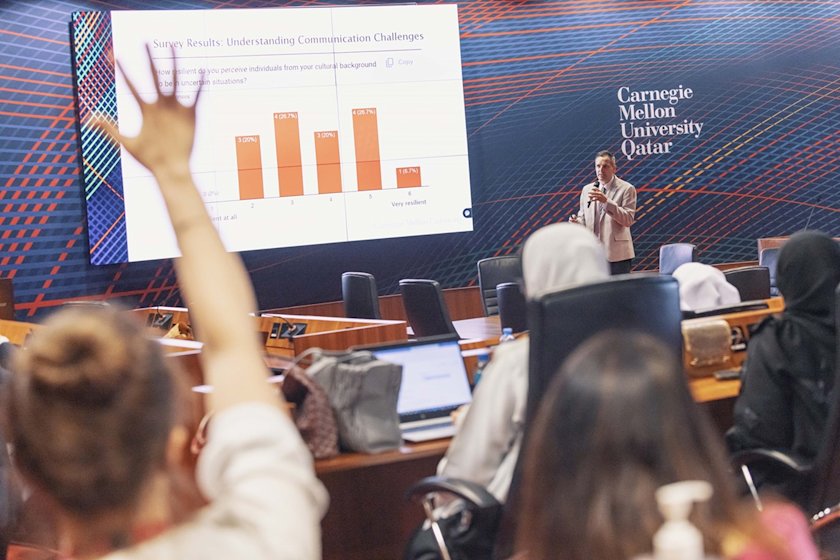
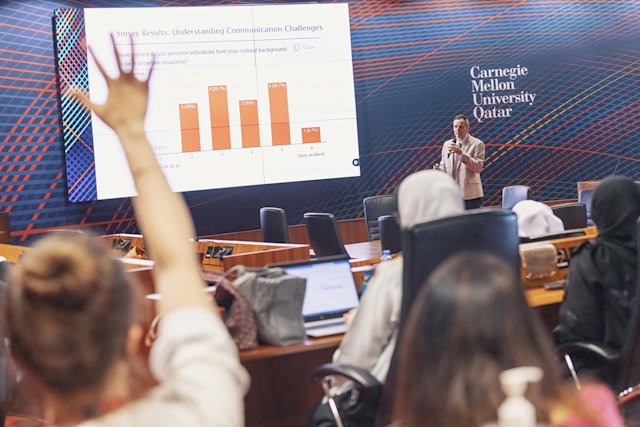
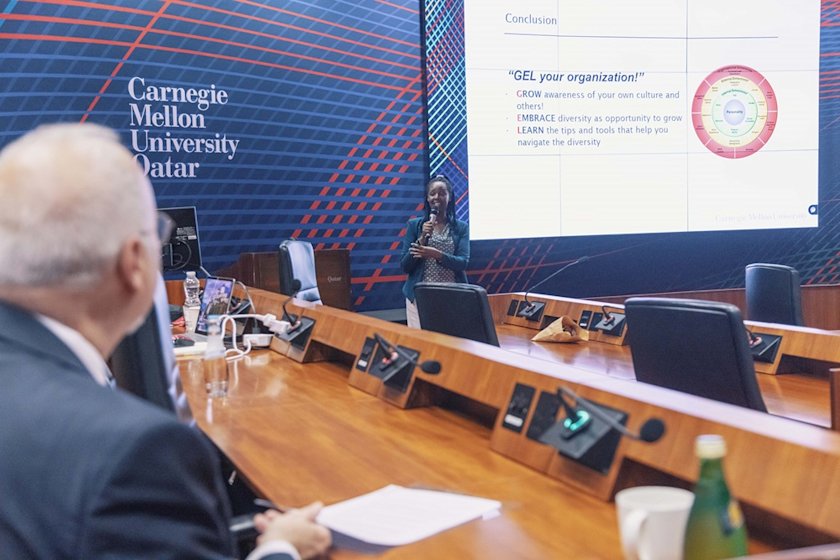
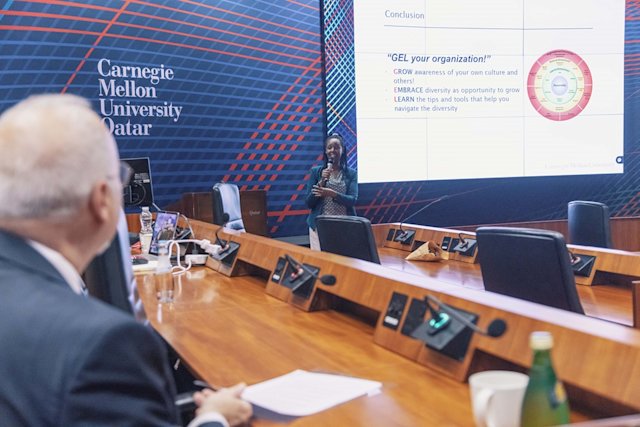
Connections in Tech
Companies defined by their desire to innovate for a more sustainable world signaled their plans to join the tech-focused community at QF’s Qatar Science & Technology Park (QSTP) in May.
China’s Davinci Motor Co., Ltd, whose work centers on robotic vehicles, and leading Unmanned Service Vehicles Manufacturer OceanAlpha Group Ltd – whose products can perform functions including collecting vital data for environmental preservation – both signed Letters of Intent to establish research and development centers at QSTP. They were joined the following month by Tashan Technology, a world-renowned developer of Artificial Intelligence tactile sensing chips.
On the sustainability front, HBKU’s Qatar Environment and Energy Research Institute hosted international stakeholders in the field of photovoltaics – the first time such meetings have been held in Doha – to discuss the ability of these modules to meet the needs of markets and users.
And having explored social, cultural, and political issues through mediums ranging from creative writing and documentaries to research projects, nine student works emerged as winners of Northwestern Qatar’s 11th Media and Research Awards, judged by industry experts in Qatar and local and international media and communication organizations.
Companies defined by their desire to innovate for a more sustainable world signaled their plans to join the tech-focused community at QF’s Qatar Science & Technology Park (QSTP) in May.
China’s Davinci Motor Co., Ltd, whose work centers on robotic vehicles, and leading Unmanned Service Vehicles Manufacturer OceanAlpha Group Ltd – whose products can perform functions including collecting vital data for environmental preservation – both signed Letters of Intent to establish research and development centers at QSTP. They were joined the following month by Tashan Technology, a world-renowned developer of Artificial Intelligence tactile sensing chips.
On the sustainability front, HBKU’s Qatar Environment and Energy Research Institute hosted international stakeholders in the field of photovoltaics – the first time such meetings have been held in Doha – to discuss the ability of these modules to meet the needs of markets and users.
And having explored social, cultural, and political issues through mediums ranging from creative writing and documentaries to research projects, nine student works emerged as winners of Northwestern Qatar’s 11th Media and Research Awards, judged by industry experts in Qatar and local and international media and communication organizations.
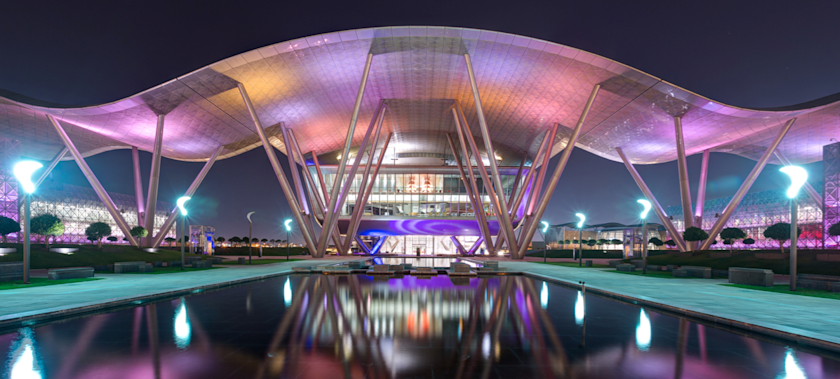
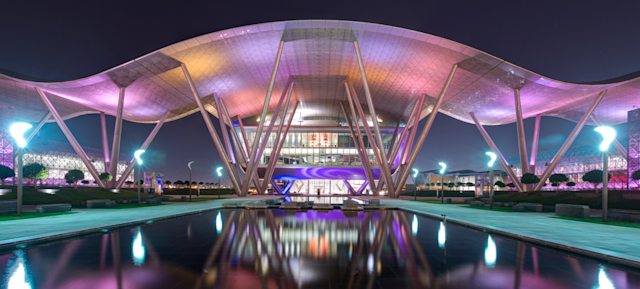
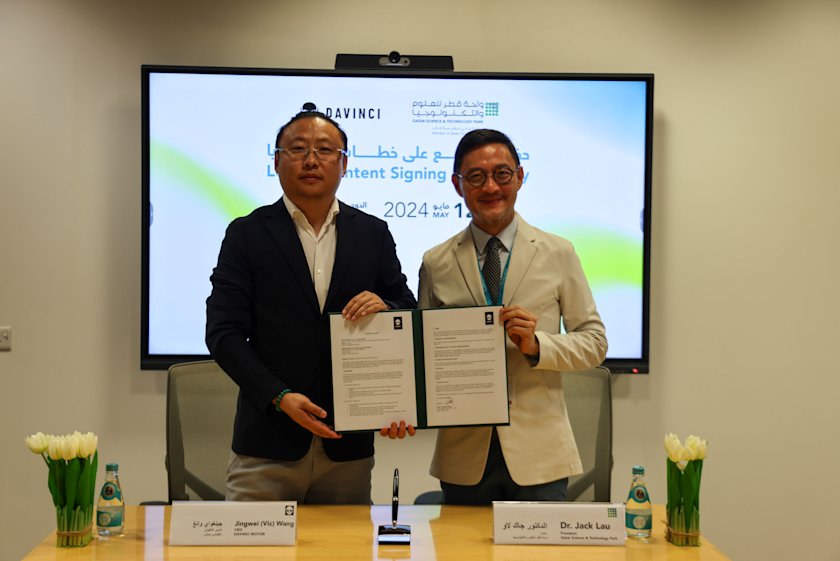
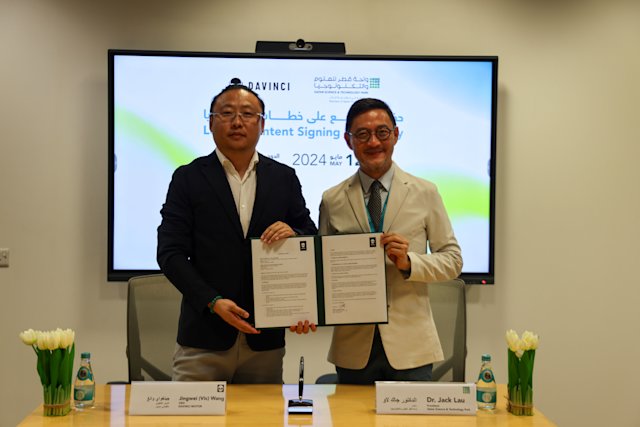
Qatar has positioned itself as a regional leader in innovation, and the possibility of welcoming global leaders in sustainable solutions means the country will further consolidate its regional role and boost its global impact.
Envisaging a New Age
And a fitness-focused entrepreneur who wants to change the game for health-centered innovation at QF in May to talk tech – in the latest edition of QF’s platform for dialogue, the Education City Speaker Series.
In his public talk, Will Ahmed, Founder and CEO of WHOOP – which develops next-generation wearable technology for optimizing health – explained how Artificial Intelligence will ultimately evolve to the point where it becomes a 24/7 coach, trainer, nutritionist, and doctor for wearers of such devices.
AI is already a key component of WHOOP’s technology, with its devices allowing users to ask questions about their health and fitness routine. But, as Ahmed explained, it is set to go much further.
“I think the power of health monitoring is that it will be able to predict illnesses, heart attacks, strokes, diseases, and all sorts of things,” he said. “And I do feel that, in the next three to five years, we are going to see this massive golden age for health awareness.
“I really believe we’re going to see an unbelievable growth in preventative medicine.”
And a fitness-focused entrepreneur who wants to change the game for health-centered innovation at QF in May to talk tech – in the latest edition of QF’s platform for dialogue, the Education City Speaker Series.
In his public talk, Will Ahmed, Founder and CEO of WHOOP – which develops next-generation wearable technology for optimizing health – explained how Artificial Intelligence will ultimately evolve to the point where it becomes a 24/7 coach, trainer, nutritionist, and doctor for wearers of such devices.
AI is already a key component of WHOOP’s technology, with its devices allowing users to ask questions about their health and fitness routine. But, as Ahmed explained, it is set to go much further.
“I think the power of health monitoring is that it will be able to predict illnesses, heart attacks, strokes, diseases, and all sorts of things,” he said. “And I do feel that, in the next three to five years, we are going to see this massive golden age for health awareness.
“I really believe we’re going to see an unbelievable growth in preventative medicine.”
Collaboration, Discovery, Learning
From education and engagement to partnerships and discovery, the QF ecosystem remained a hive of activity entering summer.
HBKU teamed up with NASA to explore technology collaborations in quantum computing, while the university’s Qatar Biomedical Research Institute released a new study uncovering the role of a particular set of molecules in understanding neurological disorders.
Meanwhile, researchers at QF partner university Weill Cornell Medicine-Qatar (WCM-Q) made new breakthroughs surrounding the molecular processes that cause diabetes, and eight aspiring scientists graduated from the university’s Biomedical Research Training Program for Nationals, with QF’s Sidra Medicine making whole genome sequencing available – a method that allows more personalized, accurate, and swift diagnoses in pediatric healthcare.
And faculty and researchers from QF partner university Northwestern University in Qatar’s Institute for Advanced Study in the Global South presented their work at two top international communication conferences, while fellow partner university Texas A&M University at Qatar (TAMUQ) provided students visiting Qatar with an immersive engineering experience.
From education and engagement to partnerships and discovery, the QF ecosystem remained a hive of activity entering summer.
HBKU teamed up with NASA to explore technology collaborations in quantum computing, while the university’s Qatar Biomedical Research Institute released a new study uncovering the role of a particular set of molecules in understanding neurological disorders.
Meanwhile, researchers at QF partner university Weill Cornell Medicine-Qatar (WCM-Q) made new breakthroughs surrounding the molecular processes that cause diabetes, and eight aspiring scientists graduated from the university’s Biomedical Research Training Program for Nationals, with QF’s Sidra Medicine making whole genome sequencing available – a method that allows more personalized, accurate, and swift diagnoses in pediatric healthcare.
And faculty and researchers from QF partner university Northwestern University in Qatar’s Institute for Advanced Study in the Global South presented their work at two top international communication conferences, while fellow partner university Texas A&M University at Qatar (TAMUQ) provided students visiting Qatar with an immersive engineering experience.
My practical experience has ignited a deeper passion for my chosen field, driving my anticipation to delve into the field of research I have long dreamed of.


Connecting Faiths, Advancing Inclusion
An interfaith meeting between a QF academic and Pope Francis, the head of the Catholic Church, emphasized how continuing relations and dialogue between Muslims and Christians on society’s most pressing issues is pivotal for humanity.
During his audience with Pope Francis, Dr. Recep Şentürk, Dean of QF member HBKU’s College of Islamic Studies (CIS), presented the pontiff with a copy of The Covenants of the Prophet Muhammad: Historical Legacy & Contemporary Human Rights.
Meanwhile, HBKU’s College of Public Policy signed an agreement with the International Organization for Migration to create a policy program for education and research surrounding migration in Qatar and the region; and, through research carried out with Ethiopia’s Hawassa University, produced recommendations for ensuring everyone has access to clean water and sanitation.
And Qatar’s leading telecommunications operator and ICT provider, Ooredoo, announced it would provide an estimated QAR2.8 million to HBKU’s Qatar Center for Quantum Computing (QC2), to support the center’s pioneering project to build Qatar’s first quantum communication testbed.
An interfaith meeting between a QF academic and Pope Francis, the head of the Catholic Church, emphasized how continuing relations and dialogue between Muslims and Christians on society’s most pressing issues is pivotal for humanity.
During his audience with Pope Francis, Dr. Recep Şentürk, Dean of QF member HBKU’s College of Islamic Studies (CIS), presented the pontiff with a copy of The Covenants of the Prophet Muhammad: Historical Legacy & Contemporary Human Rights.
Meanwhile, HBKU’s College of Public Policy signed an agreement with the International Organization for Migration to create a policy program for education and research surrounding migration in Qatar and the region; and, through research carried out with Ethiopia’s Hawassa University, produced recommendations for ensuring everyone has access to clean water and sanitation.
And Qatar’s leading telecommunications operator and ICT provider, Ooredoo, announced it would provide an estimated QAR2.8 million to HBKU’s Qatar Center for Quantum Computing (QC2), to support the center’s pioneering project to build Qatar’s first quantum communication testbed.
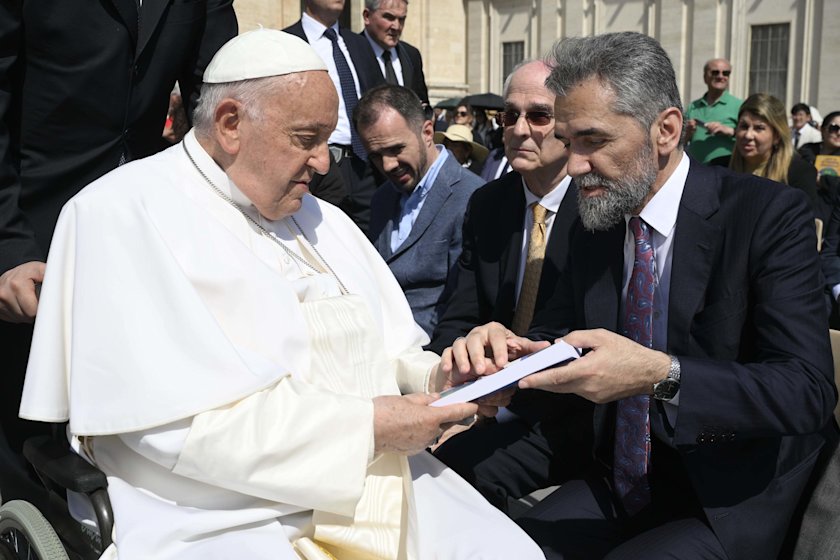
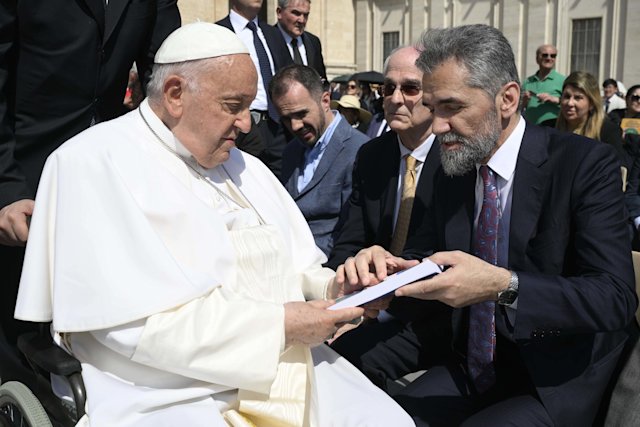
Despite conceptual differences, Islam and Christianity share an enduring commitment to universal human rights…open dialogue between both faiths remains essential.
The QC2 quantum communication testbed will:
- Harness quantum cryptography for more secure communications
- Be the cornerstone of Qatar’s future quantum networks
- Provide a basis for next-generation quantum internet in Qatar
We believe this initiative will lead to significant breakthroughs, strengthen our commitment to cutting-edge technology, and benefit the country’s mission to become a regional hub in technological innovation and security.
Looking to the Future
And reflecting the integrated nature of QF’s unique ecosystem of education, where different universities stand just yards from each other – opening up a world of learning horizons – QF’s Marhaba event saw students from across Education City come together to discover just what their journey holds.
The annual gathering, titled ‘Education 2.0: Pioneering the Future Together’, included a focus on Artificial Intelligence and the impact it will have on the future lives of students, as speakers encouraged learners to explore, innovate – and use AI tools beneficially and responsibly.
“Embrace them, but watch out for the double-edged sword,” said Khaled A. Harras, Senior Associate Dean, CMU-Q. “Make sure to be using AI to improve your learning, not skip your learning.”
And GU-Q faculty member Dr. James Olsen’s message to students was: “You have to care about your education. And you’re going to have to learn about learning. And in terms of learning how to learn, one key thing you’ve got to know is: it takes effort.”
And reflecting the integrated nature of QF’s unique ecosystem of education, where different universities stand just yards from each other – opening up a world of learning horizons – QF’s Marhaba event saw students from across Education City come together to discover just what their journey holds.
The annual gathering, titled ‘Education 2.0: Pioneering the Future Together’, included a focus on Artificial Intelligence and the impact it will have on the future lives of students, as speakers encouraged learners to explore, innovate – and use AI tools beneficially and responsibly.
“Embrace them, but watch out for the double-edged sword,” said Khaled A. Harras, Senior Associate Dean, CMU-Q. “Make sure to be using AI to improve your learning, not skip your learning.”
And GU-Q faculty member Dr. James Olsen’s message to students was: “You have to care about your education. And you’re going to have to learn about learning. And in terms of learning how to learn, one key thing you’ve got to know is: it takes effort.”
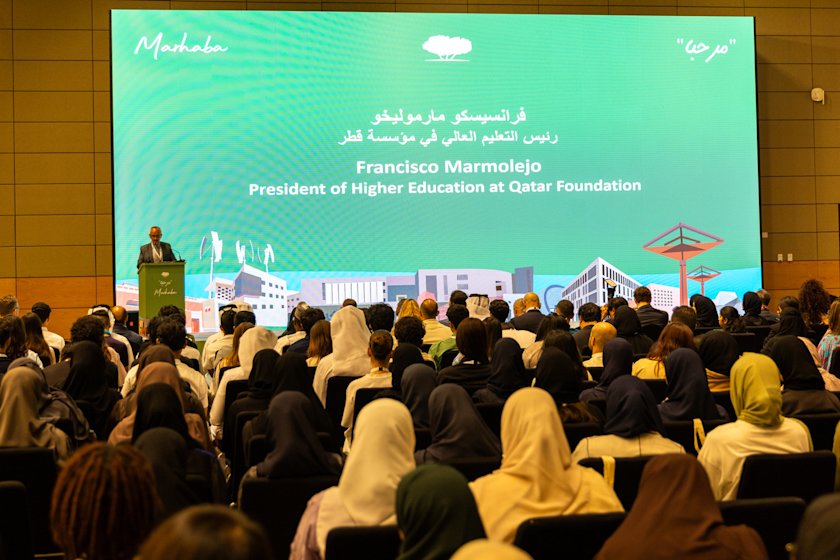
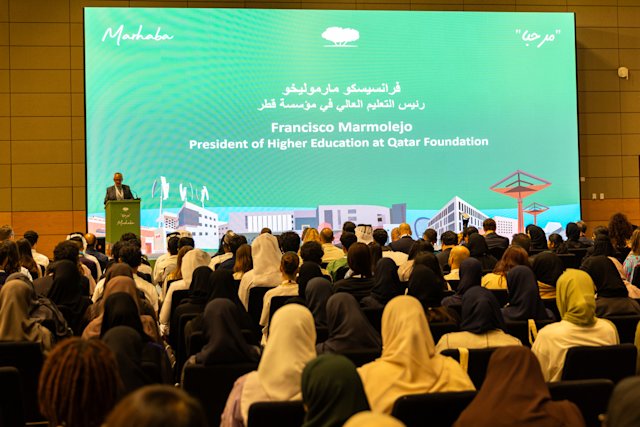
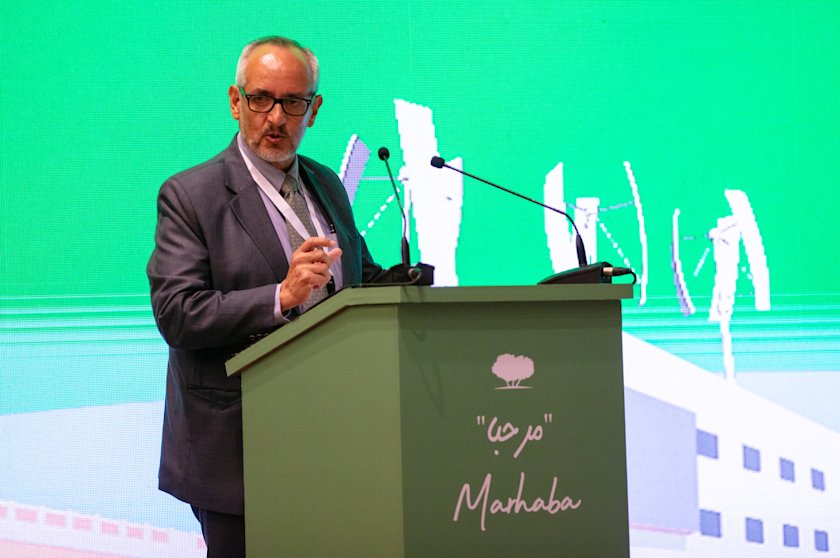
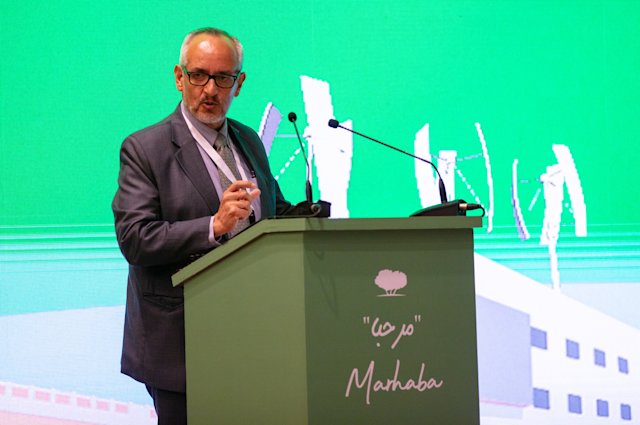
This is just the start. You have so much to look forward to. And at every step, this community of knowledge that you are now part of will be here to support you.
Uniting Global Knowledge
Exploring the role of Artificial Intelligence in the future path for higher education and skills development is the purpose of a new international research consortium led by QF’s global education thinktank, announced in September.
WISE partnered with the Institute of International Education and seven universities to embark on a 12-month series of studies across diverse geographical contexts. The aim is to provide new insights into the integration of AI into educational curricula and practice, its role in closing the skills gap, and how to prepare students for an AI-driven world of work.
Meanwhile, the month also saw participants from universities at Education City give their perspectives on the impact of generative AI on academics, in a session hosted by QF partner university Virginia Commonwealth University School of the Arts in Qatar (VCUarts Qatar).
“The integration of AI in education is not merely a trend; it is a transformative force that has the potential to redefine how we teach, learn, and interact within our academic environments,” said Amir Berbić, Dean of VCUarts Qatar. “Together, we can explore how to harness the potential of AI to enrich teaching and learning, and ultimately to foster a more effective and equitable educational experience for all.”
Exploring the role of Artificial Intelligence in the future path for higher education and skills development is the purpose of a new international research consortium led by QF’s global education thinktank, announced in September.
WISE partnered with the Institute of International Education and seven universities to embark on a 12-month series of studies across diverse geographical contexts. The aim is to provide new insights into the integration of AI into educational curricula and practice, its role in closing the skills gap, and how to prepare students for an AI-driven world of work.
Meanwhile, the month also saw participants from universities at Education City give their perspectives on the impact of generative AI on academics, in a session hosted by QF partner university Virginia Commonwealth University School of the Arts in Qatar (VCUarts Qatar).
“The integration of AI in education is not merely a trend; it is a transformative force that has the potential to redefine how we teach, learn, and interact within our academic environments,” said Amir Berbić, Dean of VCUarts Qatar. “Together, we can explore how to harness the potential of AI to enrich teaching and learning, and ultimately to foster a more effective and equitable educational experience for all.”
As nations navigate the impact and potential of AI, higher education can build the bridge between theoretical knowledge and practical, industry-relevant skills.
The WISE Global Research Consortium on AI is conducting research in:
- Africa
- Asia
- Europe
- North America
- South America
Consortium members include:
- Ashesi University, Ghana
- Universidad Camilo Jose Cela, Spain
- University of Pennsylvania, US
- The Birla Institute of Technology & Science, India
- Nazarbayev University, Kazakhstan
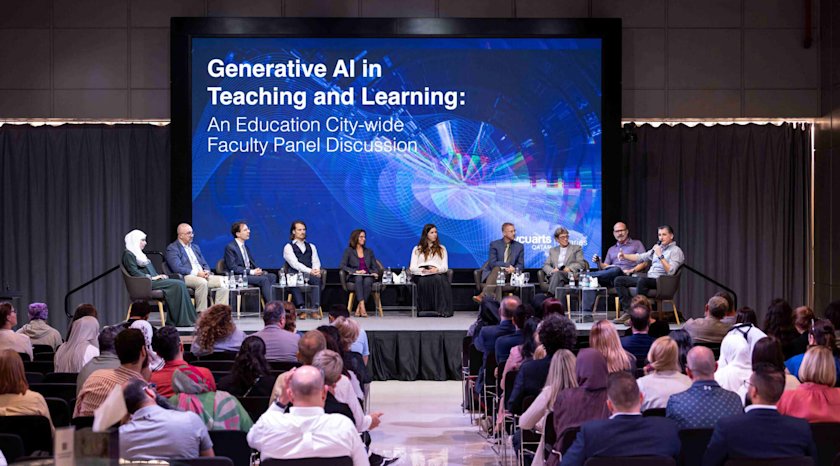
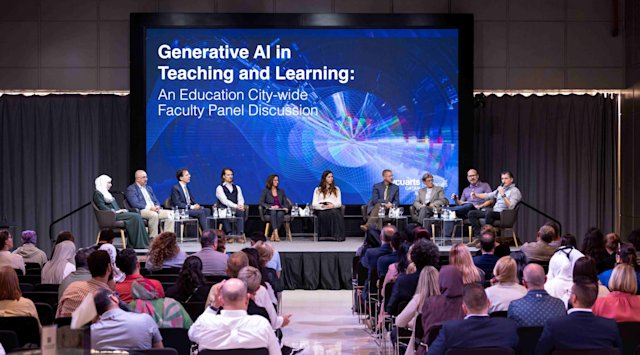
Bringing the Tech World Together
September saw QF’s hub of technology innovation and entrepreneurship, Qatar Science & Technology Park (QSTP), host the first edition of a program which will be a channel for collaboration for innovators, entrepreneurs, science parks, tech accelerators, and universities from around the world.
And the inaugural Global Innovation Link program welcomed five tech startups from Pakistan – all of which employ Artificial Intelligence in their products – for a two-week immersive innovation experience, where they joined QSTP’s community and engaged with key academic, industry, and government stakeholders in Qatar.
QSTP also marked the end of its first Summer Internship Bootcamp, where university students gained real-world insight into what it takes to be a tech innovator and entrepreneur, including through access to companies and startups based at the park.
Ambassadors for Dialogue
Meanwhile, QF’s Doha Debates introduced the latest cohort of emerging leaders from around the world to participate in the latest edition of its Ambassador Program – with 16 of the program’s alumni being selected to mentor them.
Through the program, ambassadors work with experts to develop advanced communication skills and engage in dialogue on complex global issues – making them role models for building consensus through debate.
September saw QF’s hub of technology innovation and entrepreneurship, Qatar Science & Technology Park (QSTP), host the first edition of a program which will be a channel for collaboration for innovators, entrepreneurs, science parks, tech accelerators, and universities from around the world.
And the inaugural Global Innovation Link program welcomed five tech startups from Pakistan – all of which employ Artificial Intelligence in their products – for a two-week immersive innovation experience, where they joined QSTP’s community and engaged with key academic, industry, and government stakeholders in Qatar.
QSTP also marked the end of its first Summer Internship Bootcamp, where university students gained real-world insight into what it takes to be a tech innovator and entrepreneur, including through access to companies and startups based at the park.
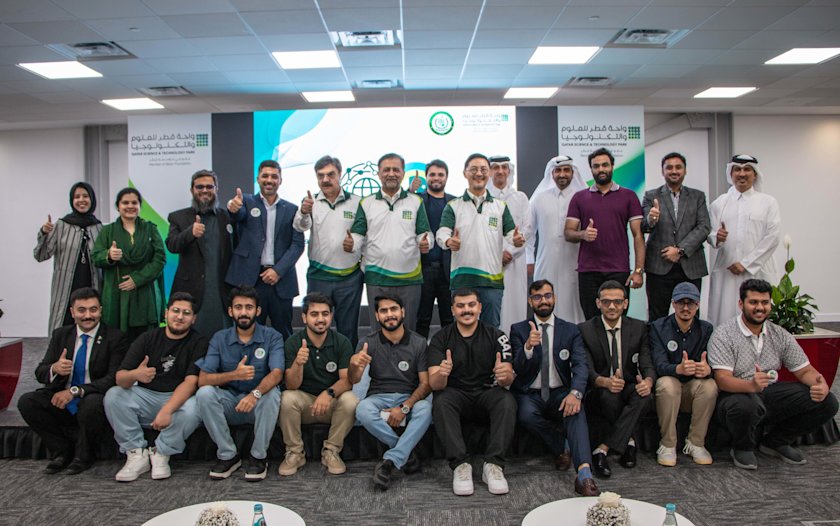
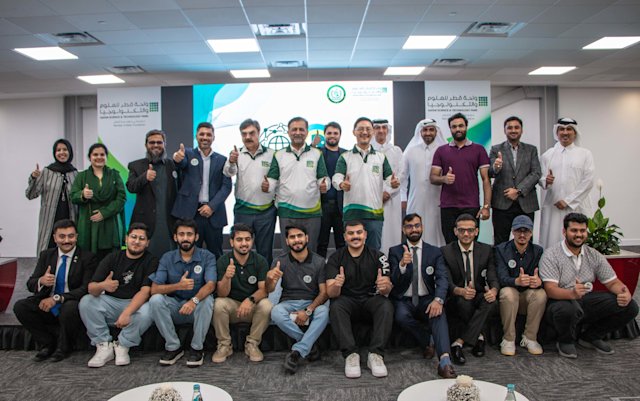
By building bridges between Pakistani startups and Qatari innovators, tech leaders, and investors, we are paving the way for joint ventures, knowledge exchange, and strategic growth.
Spearheading a Scientific Renaissance
Almost two decades ago, QF formed the Arab Expatriate Scientists Network, with its aim being to help nurture a renaissance of the proud tradition of Arab science and research, by reconnecting scientists, intellectuals, and scholars with their roots in the Arab world – so they can contribute to its development and its future.
This network has now evolved into Arab Global Scholars (AGS): an innovation-focused community linking Arab scholars, research institutes, universities, and industry partners to advance science, research, and capacity-building projects from within Qatar. And in November, its members came together at the AGS Annual Gathering, held at QF member Hamad Bin Khalifa University (HBKU).
With its opening attended by Her Highness Sheikha Moza bint Nasser, Chairperson of Qatar Foundation, the three-day event saw internationally and locally based Arab experts join dialogues and workshops centered on crucial fields such as precision health and biotech, AI, cybersecurity, sustainability, and environmental health.
And the gathering also unveiled AGS’ digital platform: an interactive space introducing AGS members to an array of opportunities for collaboration, from research projects and academic exchanges to professional development opportunities – making geography no obstacle to impact being generated by Arab expertise.
Almost two decades ago, QF formed the Arab Expatriate Scientists Network, with its aim being to help nurture a renaissance of the proud tradition of Arab science and research, by reconnecting scientists, intellectuals, and scholars with their roots in the Arab world – so they can contribute to its development and its future.
This network has now evolved into Arab Global Scholars (AGS): an innovation-focused community linking Arab scholars, research institutes, universities, and industry partners to advance science, research, and capacity-building projects from within Qatar. And in November, its members came together at the AGS Annual Gathering, held at QF member Hamad Bin Khalifa University (HBKU).
With its opening attended by Her Highness Sheikha Moza bint Nasser, Chairperson of Qatar Foundation, the three-day event saw internationally and locally based Arab experts join dialogues and workshops centered on crucial fields such as precision health and biotech, AI, cybersecurity, sustainability, and environmental health.
And the gathering also unveiled AGS’ digital platform: an interactive space introducing AGS members to an array of opportunities for collaboration, from research projects and academic exchanges to professional development opportunities – making geography no obstacle to impact being generated by Arab expertise.
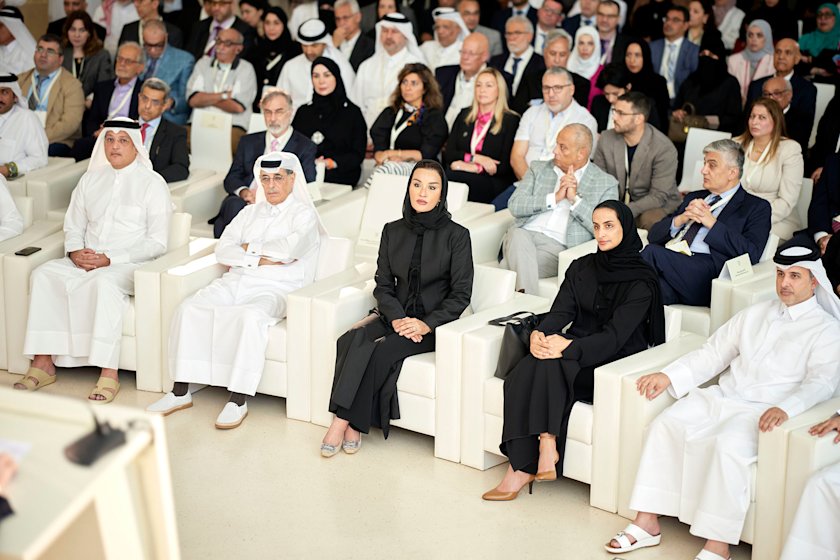
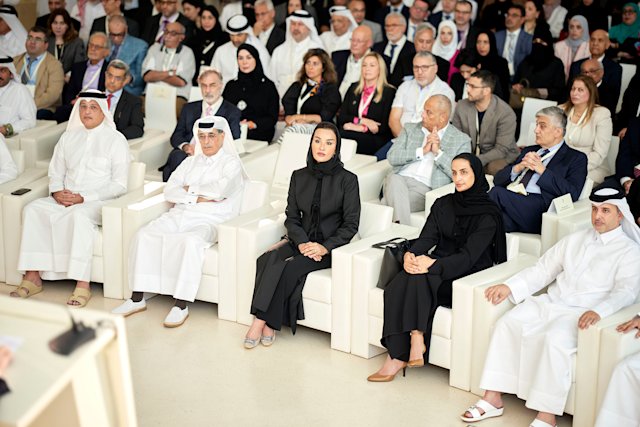
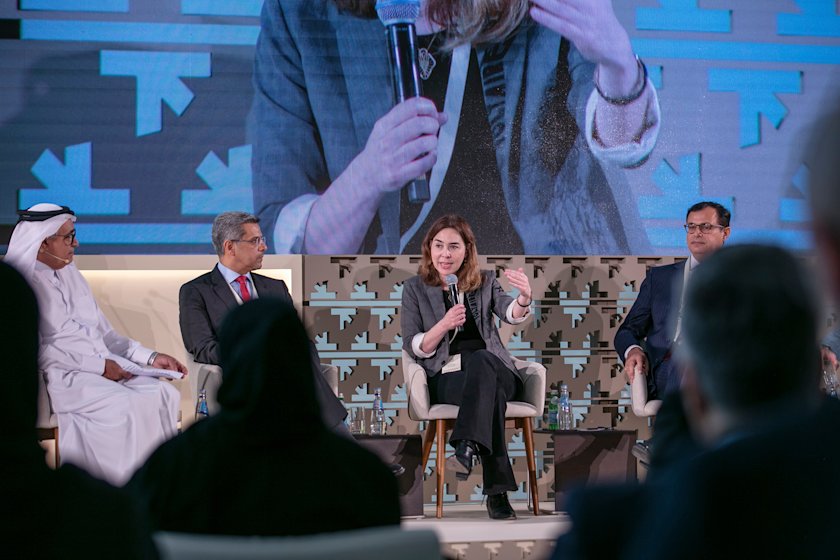
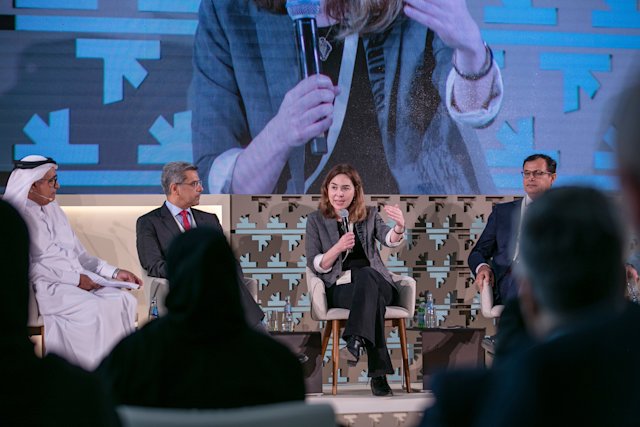
Today, AGS members may be based anywhere in the world, as through technology we explore new and different methods of collaboration, making it easier for everyone to contribute to ensuring this region is stronger and better able to overcome the challenges of the 21st Century.
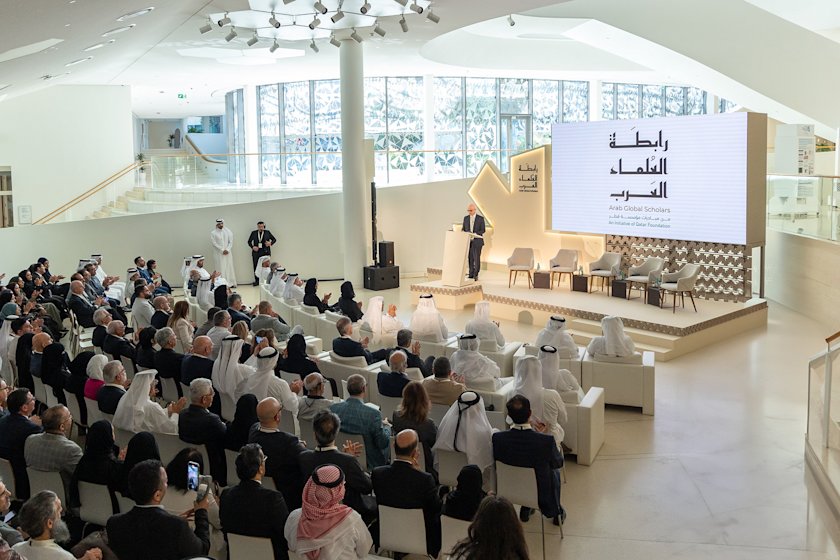
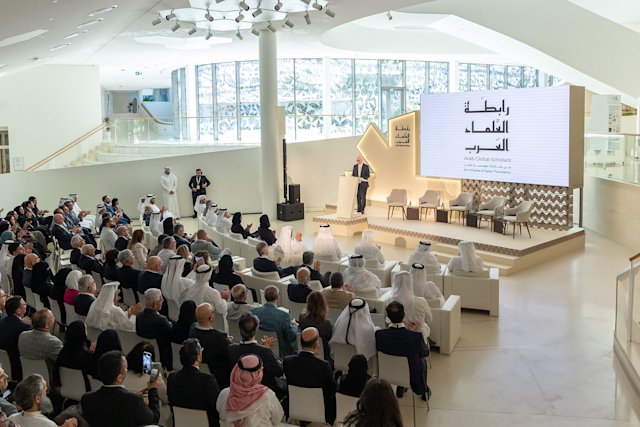
Inside a Tech Transformation
With Artificial Intelligence becoming an increasingly central aspect of daily life, QF’s Qatar Science & Technology Park (QSTP) marked its 15th anniversary by hosting AI Week 2024 – an inaugural deep-dive into advances in a technology reshaping our world.
The five-day event saw technology specialists, industry leaders, innovators, and academics lead and join expert-led masterclasses, panel discussions, workshops, and live demonstrations based around four themes: the future of AI, machine and deep learning, AI in applied technology – such as unmanned vehicles – and AI and sustainability.
During the week, students explored the role of robots in tackling environmental challenges in an AI Hackathon; the first-ever QSTP AI Immersive Experience presented groundbreaking AI-driven technologies in fields including transport, healthcare, and marine life; and QSTP’s Ride & Pitch competition saw startups and university students present their innovations to judges from within a moving tram.
Elsewhere, CMU-Q revealed how it is creating a strategy to integrate AI into its campus, within and beyond the classroom; while QF partner university Northwestern University in Qatar launched a new minor in AI and Media, spanning both technical skills and ethical considerations.
With Artificial Intelligence becoming an increasingly central aspect of daily life, QF’s Qatar Science & Technology Park (QSTP) marked its 15th anniversary by hosting AI Week 2024 – an inaugural deep-dive into advances in a technology reshaping our world.
The five-day event saw technology specialists, industry leaders, innovators, and academics lead and join expert-led masterclasses, panel discussions, workshops, and live demonstrations based around four themes: the future of AI, machine and deep learning, AI in applied technology – such as unmanned vehicles – and AI and sustainability.
During the week, students explored the role of robots in tackling environmental challenges in an AI Hackathon; the first-ever QSTP AI Immersive Experience presented groundbreaking AI-driven technologies in fields including transport, healthcare, and marine life; and QSTP’s Ride & Pitch competition saw startups and university students present their innovations to judges from within a moving tram.
Elsewhere, CMU-Q revealed how it is creating a strategy to integrate AI into its campus, within and beyond the classroom; while QF partner university Northwestern University in Qatar launched a new minor in AI and Media, spanning both technical skills and ethical considerations.
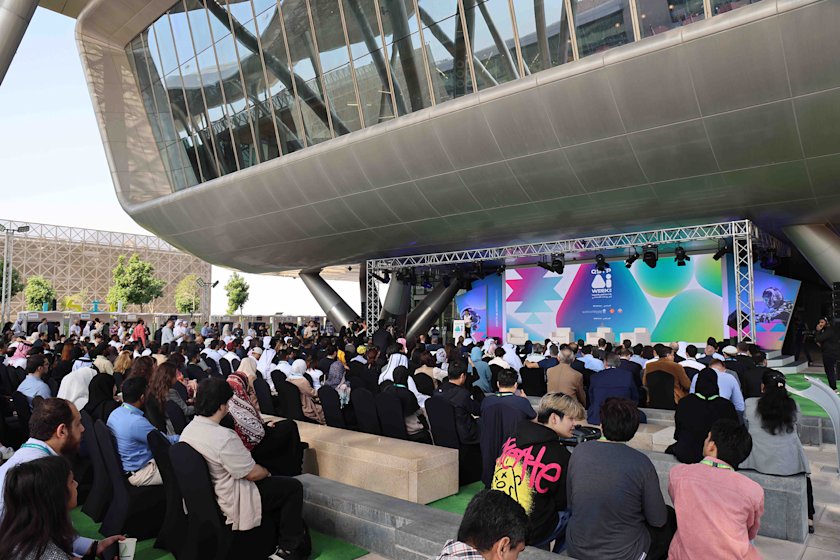
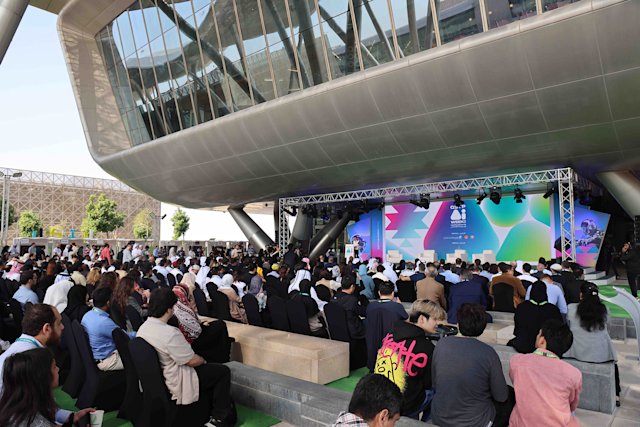
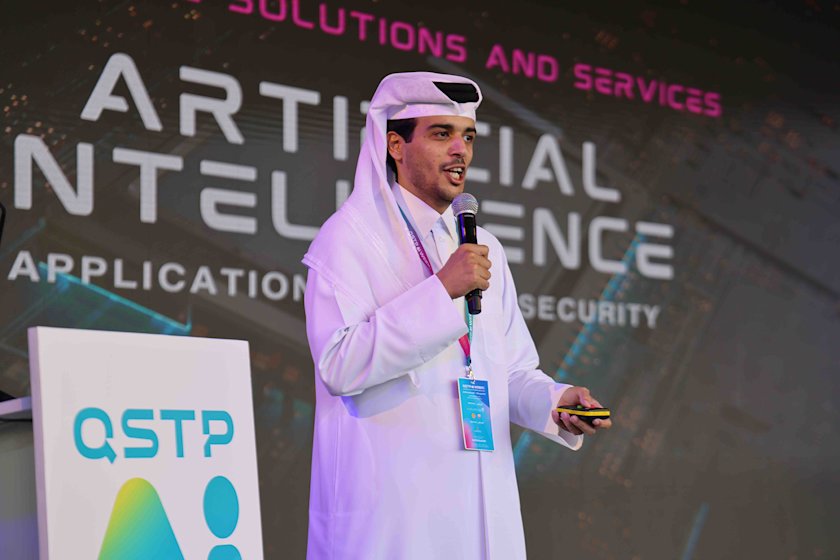
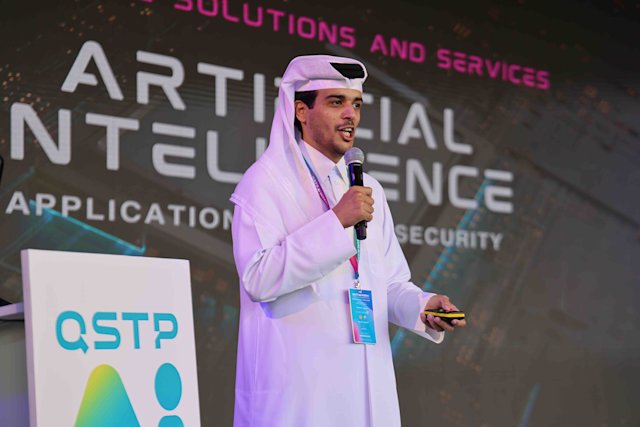
Through the National AI Strategy, Qatar is integrating AI into critical services such as traffic management, energy optimization, and public safety, creating smarter, more livable, and sustainable cities for all.
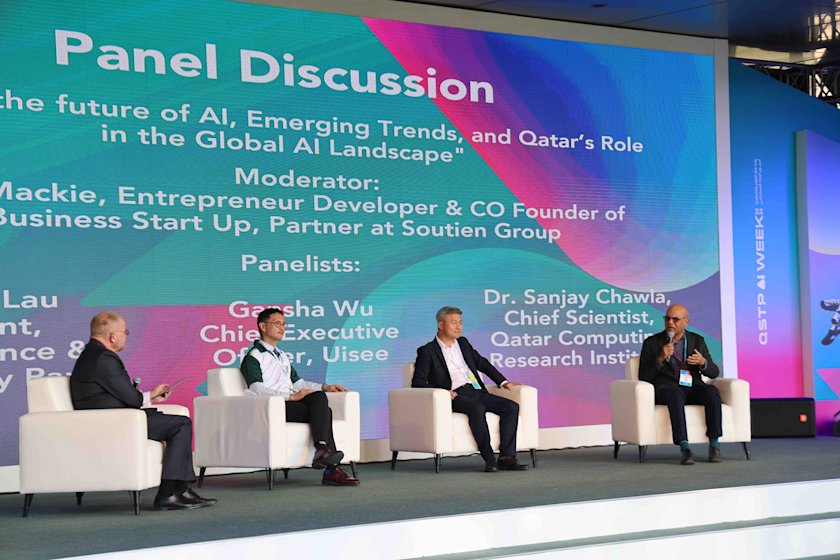
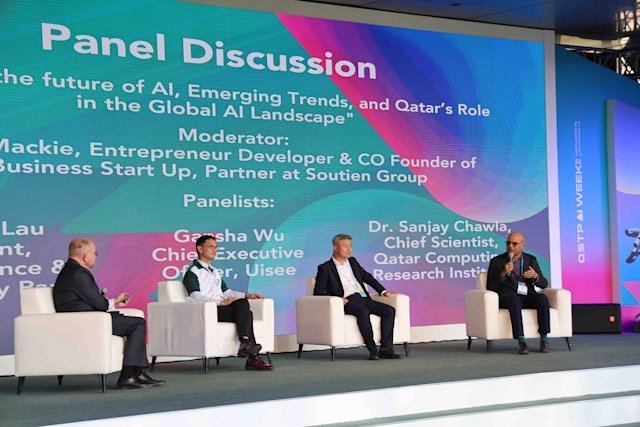
Arabic in the Age of AI
A major milestone in elevating Arab culture and the Arabic language in the era of AI was reached in December, with the inauguration of Fanar – The Arab Artificial Intelligence Project.
Created through a collaboration between the Ministry of Communications and Information Technology and QF’s Hamad Bin Khalifa University (HBKU), Fanar is a groundbreaking model providing in-depth understanding of Arabic across all its dimensions, dialects, and cultural expressions. Able to generate, write, summarize, rephrase, and explain Arabic text with exceptional accuracy, it began as an integrated research initiative within HBKU’s Qatar Computing Research Institute.
“Fanar is a further reflection of our university’s commitment to developing responses to challenges of national and global relevance which enhance the country’s prowess in the field of AI and related technologies based on the Arabic language,” said Dr. Ahmad M Hasnah, President of HBKU.
Meanwhile, AI’s impact on the future of work was explored at the latest edition of QF partner university Georgetown University in Qatar’s Hiwaraat conference series, while HBKU’s Qatar Center for Quantum Computing forged a new alliance of knowledge with one of Canada’s leading drivers of innovation, and QCRI co-hosted a national competition designed to reinforce Qatar’s cybersecurity resilience.
A major milestone in elevating Arab culture and the Arabic language in the era of AI was reached in December, with the inauguration of Fanar – The Arab Artificial Intelligence Project.
Created through a collaboration between the Ministry of Communications and Information Technology and QF’s Hamad Bin Khalifa University (HBKU), Fanar is a groundbreaking model providing in-depth understanding of Arabic across all its dimensions, dialects, and cultural expressions. Able to generate, write, summarize, rephrase, and explain Arabic text with exceptional accuracy, it began as an integrated research initiative within HBKU’s Qatar Computing Research Institute.
“Fanar is a further reflection of our university’s commitment to developing responses to challenges of national and global relevance which enhance the country’s prowess in the field of AI and related technologies based on the Arabic language,” said Dr. Ahmad M Hasnah, President of HBKU.
Meanwhile, AI’s impact on the future of work was explored at the latest edition of QF partner university Georgetown University in Qatar’s Hiwaraat conference series, while HBKU’s Qatar Center for Quantum Computing forged a new alliance of knowledge with one of Canada’s leading drivers of innovation, and QCRI co-hosted a national competition designed to reinforce Qatar’s cybersecurity resilience.




The Fanar project exemplifies Qatar’s commitment to supporting research projects and transforming them into strategic governmental initiatives that position Qatar as a leader in Artificial Intelligence and modern technologies.
Fanar is built on a database of:
- More than 300 billion words
- Over a trillion Arabic phonetic segments
- A technical architecture comprising seven billion parameters






